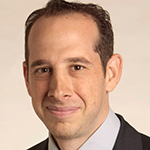 Rene Henry |
Traditions and business practices change with generations, but in my opinion there's no excuse for bad manners and a lack of good old-fashioned common courtesy. Since I retired, much has changed in Hollywood and I don't believe all for the good.
Too many publicists, agents, producers, journalists and others in the entertainment industry just don't realize it's rude and sometimes insulting to not promptly return phone calls or respond to letters, emails and faxes. By doing so, publicists and agents do a disservice to their clients. They don’t understand that how they respond reflects on their clients in a positive or negative way.
There are more publicists than public relations professionals serving the industry today. And, the professional practitioners who lack the savoir faire and understanding of politeness as Henry Rogers (Rogers & Cowen), Emily Torchia (ICPR), Rupert Allen (ICPR) and Leslee Dart (42 West). That’s probably why these four represented the biggest stars in show business.
I had a project several years ago and sought positive quotes from well-known celebrities. After getting no response from several actors’ publicists I became creative to get what I wanted. I bypassed them and had friends at networks put my correspondence in interoffice mail and also went through their parents and relatives. All responded with great quotes and just what I wanted. Too many publicists today are just flacks.
Emmy-winning producer Don Ohlmeyer, Oscar-winning producer Frank McCarthy and television executive Shelly Saltman wouldn't tolerate rude behavior. Many in the media are guilty and could've learned well from Roderick Mann of the Los Angeles Times and Tichi Wilkerson (later Miles and then Kassel) when she was at the Hollywood Reporter. Failure of the editors at the Hollywood Reporter to respond to three recent emails prompted this article.
To me, the epitome of professionalism and good manners was journalist and PR professional Hank Rieger. He left United Press in Los Angeles after 20 years to head west coast PR for NBC. Two times he was president of the Academy of Television Arts & Sciences and had the vision to found the highly successful Emmy magazine. He also was president of the Los Angeles Press Club, a consultant for ESPN from its inception and one of a dozen very involved in helping bring the 1984 Olympic Games to Los Angeles. Rieger had a way of personalizing all of his responses and had self-imposed time deadlines.
The most egregious example of unacceptable behavior that I've recently experienced is by the head of a professional organization I’ve belonged to for more than 40 years. I first wrote this individual on June 8 with a couple of questions as well as suggestions for improved customer service. I followed up with a letter on August 2 in the event my letter was lost in the mail. Finally, on September 5, I wrote her that throughout my career I never had to write the paid staff head of an organization to which I belonged more than once to get a response. I believe some would call her behavior malfeasant or derelict. I’m still waiting for a response.
Until the era of junk mail, spam and robocalls, I had a policy of returning every letter, email and call. During my career, job seekers sent me hundreds of unsolicited résumés and I made a point of personalizing each response. This was during the days of the IBM Correcting Selectric typewriter and there was no simple form to download from a computer and modify for each response. It was gratifying to receive calls from some thanking me for my encouragement and ideas. One individual later thanked me by becoming a profitable client.
The computer, Internet, email and new technologies have made it so much easier to communicate today but the reverse has happened. When was the last time you received a handwritten note? Or someone thanked you for something you did? Event planners complain that people don't respond and don't even know what RSVP means. Words like "thank you," "please," "you’re welcome," "excuse me" and "I’m sorry" are missing from the vocabularies of a generation. I attribute much of the problem to the proliferation of social media and its negative impact on society.
***
Rene A. Henry spent six decades of his career in PR and is the author of 10 books. In 1975 he co-founded and was a managing partner of ICPR, Los Angeles, then the second largest PR firm in the West with its business focused on entertainment. He is a long-time member of both the Motion Picture and Television Academies and is past chair of the College of Fellows of the Public Relations Society of America.


 Brunswick Group handles Endeavor, which has launched a review of strategic alternatives at the sports and entertainment combine as CEO Ari Emanuel believes Wall Street undervalues his company.
Brunswick Group handles Endeavor, which has launched a review of strategic alternatives at the sports and entertainment combine as CEO Ari Emanuel believes Wall Street undervalues his company. MWWPR has been retained by SportBLX to lead communications for the launch of a platform that allows fans and investors to own shares of unique assets in sports.
MWWPR has been retained by SportBLX to lead communications for the launch of a platform that allows fans and investors to own shares of unique assets in sports. DraftKings is betting on Donald Trump-connected Ballard Partners to help it achieve its economic development and regulatory relief goals in Washington. (1 reader comment)
DraftKings is betting on Donald Trump-connected Ballard Partners to help it achieve its economic development and regulatory relief goals in Washington. (1 reader comment) On November 15, “Ford v Ferrari” will roar into theaters, packing a publicity boost for two great global auto brands right on the marquee. Here's a Top Ten list of films in which a brand played a starring role. (1 reader comment)
On November 15, “Ford v Ferrari” will roar into theaters, packing a publicity boost for two great global auto brands right on the marquee. Here's a Top Ten list of films in which a brand played a starring role. (1 reader comment) Steven Spielberg’s Amblin Partners has brought on Dan Berger as executive vice president and head of communications.
Steven Spielberg’s Amblin Partners has brought on Dan Berger as executive vice president and head of communications.


 Have a comment? Send it to
Have a comment? Send it to 
No comments have been submitted for this story yet.